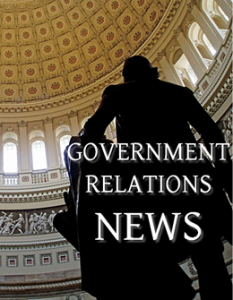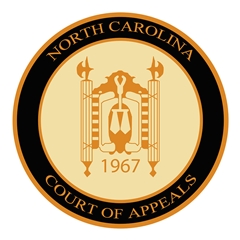February 17, 2017 •
News You Can Use Digest – February 17, 2017
Federal: Flynn Departure Erupts into a Full-Blown Crisis for the Trump White House Washington Post – Karen DeYoung, Abby Phillip, and Jenna Johnson | Published: 2/14/2017 President Trump’s ouster of national security adviser Michael Flynn, and the circumstances leading up […]

Federal:
Flynn Departure Erupts into a Full-Blown Crisis for the Trump White House
Washington Post – Karen DeYoung, Abby Phillip, and Jenna Johnson | Published: 2/14/2017
President Trump’s ouster of national security adviser Michael Flynn, and the circumstances leading up to it, have become a major crisis for the fledgling administration, forcing the White House on the defensive and precipitating the first significant breach in relations between Trump and Congress. Senate Majority Leader Mitch McConnell said it was “highly likely” the events leading to Flynn’s departure would be added to a broader probe into Russian meddling in the U.S. presidential election. Intercepts showed Flynn discussed U.S. sanctions in a phone call with the Russian ambassador, a conversation topic that Flynn first denied and then later said he could not recall. McConnell’s comments followed White House revelations that Trump was aware “for weeks” that Flynn had misled Vice President Pence and others about the content of his late December talks with Russian Ambassador Sergey Kislyak.
Report Shows ‘Untapped Power’ of Constituent Advocacy
Roll Call – Bridget Bowman | Published: 2/13/2017
The Congressional Management Foundation released a report highlighting more than a decade’s worth of its surveys that show how citizens can best influence lawmakers. According to the group’s research, citizens who show up in person and are well-prepared with facts and arguments can have a sizable impact on undecided legislators. But recent flare-ups at town hall meetings across the country have also demonstrated the impact of constituents who show up and make their voices heard. Bradford Fitch, one of the report’s authors, said phone calls and emails are not necessarily the most effective ways of communicating with legislators, and neither is a confrontation. “When you’re yelling, Congress isn’t listening,” Fitch said.
Trump Campaign Aides Had Repeated Contacts with Russian Intelligence
New York Times – Michael Schmidt, Mark Mazzetti, and Matt Apuzzo | Published: 2/14/2017
Intercepted calls and phone records show several aides and allies to President Trump’s campaign were in contact with senior Russian intelligence officials. Current and former U.S. officials who spoke with The New York Times said the contacts were discovered during the same time that intelligence agencies were investigating Russia’s extensive hacking campaign, later determined to be aimed at helping Trump win the White House. The agencies sought to learn whether the Trump campaign was colluding with the Russians on the hacking or other efforts. The officials interviewed said so far, they had seen no evidence of such cooperation. But the intercepts alarmed American intelligence and law enforcement agencies, in part because of the amount of contact that was occurring while Trump was speaking glowingly about Russian President Vladimir Putin.
Who is Donald McGahn, the Fiery Lawyer at the Center of Virtually Every Trump Controversy?
Washington Post – Matt Zapotosky and Sari Horwitz | Published: 2/14/2017
As White House counsel, Donald McGahn is supposed to provide the president with legal guidance on the thorniest issues of the day, and to manage disputes between power players inside the administration and the various executive agencies. McGahn has been at the center of virtually every controversy during the Trump administration. He is a veteran campaign finance lawyer and former member of the FEC. Before taking over the role in the administration, he worked at the Jones Day law firm and as general counsel to the Trump campaign. He is a consummate Washington insider, but like the man for whom he works, he has an independent streak, those who know him say. “Don is not a buttoned-down guy,” said Bradley Smith, a law professor at Capital University and longtime professional friend of McGahn.
From the States and Municipalities:
Florida – At Miami’s Airport, There’s Economy, First Class and … Politician
Miami Herald – Douglas Hanks | Published: 2/8/2017
A new report from the Miami-Dade ethics commission chastised the county-owned Miami International Airport for offering elected officials VIP treatment, including golf-cart rides, cutting to the front of security and Customs, and other courtesies normally reserved for foreign dignitaries. Investigators concluded most of the trips by officeholders came during official government business. But there are multiple mentions of personal travel too, including trips to visit sick relatives and other unspecified vacations. The airport’s Protocol Office arranged four escorts for Rebeca Sosa, a county commissioner, and three for her sister. “These are unexplained,” the report said of the sibling’s VIP transits
Florida – These Lawmakers Are On the Payroll of Firms That Lobby the Legislature
Sarasota Herald-Tribune – Zac Anderson | Published: 2/12/2017
The Florida Bar Association once issued a formal ethics opinion effectively prohibiting state lawmakers from working at firms that lobby the Legislature. That ethics opinion was rescinded in 1999 and now at least six Florida lawmakers, including the House speaker, work for law firms that lobby the Legislature. Those who defend the practice say there are provisions in state law and legislative rules to address any conflicts-of-interest. Some also argue that restricting such employment would discourage well-qualified individuals from serving in the Legislature because they would have to give up their jobs with big firms.
Kentucky – GOP Senators Want to Cut Sex Harassment Training
Louisville Courier-Journal – Morgan Watkins | Published: 2/13/2017
A few Republican state senators want to eliminate required sexual harassment training for lawmakers and cut back on the ethics-related instruction they receive, citing concerns about the effectiveness of those initiatives. Sen. John Schickel is sponsoring a bill would repeal existing requirements for lawmakers to go through sexual harassment and workplace harassment training. It also would require Kentucky legislators to sit through only 30 minutes of ethics-related instruction each January instead of the three hours currently mandated by state law. “It’s nothing more than political correctness training,” Schickel said. “If you don’t have good manners and good values when you come to Frankfort, I can assure you Frankfort will not teach them.”
Maryland – Gov. Hogan’s Office Has Blocked 450 People from His Facebook Page in Two Years
Washington Post – Ovetta Wiggins and Fenit Nirappil | Published: 2/8/2017
After a deluge of comments asking that he denounce President Trump’s controversial travel ban, Maryland Gov. Larry Hogan’s office blocked numerous posters and deleted their messages from his Facebook page. Gubernatorial spokesperson Doug Mayer said the governor’s office has blocked 450 people since Hogan took office two years ago. The office does not have a specific policy for handling comments on Hogan’s page, which has more than 146,500 likes. Mayer said most of the removed comments were “vulgar, derogatory, hateful or racist,” but aides have also deleted those that are a part of an organized effort. Erich Sommerfeldt, a public relations professor at the University of Maryland, said deleting negative comments, rather than responding to them, can hurt a company or public figure’s brand.
Missouri – Campaign Contribution Law Bans Corporation Donations to All Candidates
Missouri Times – Benjamin Peters | Published: 2/14/2017
Constitutional Amendment 2, which was approved by Missouri voters in November, places limits and rules on how candidates and committees can accept donations, including how much can be given. A recent advisory opinion from the Missouri Ethics Commission says the new law prohibits a corporation or labor organization from making direct contributions to a campaign committee, candidate committee, exploratory committee, or political party. That means no corporation may contribute to a candidate’s campaign at the statewide level. But with the race for St. Louis mayor and a number of local and municipal elections weeks away, the question has been raised of whether these rules apply to municipal election.
New Jersey – N.J. Election Agency Could Soon Fill Key Posts
Bergen Record – Salvador Rizzo | Published: 2/14/2017
Gov. Chris Christie and Democratic senators have struck a deal to reactivate New Jersey’s election watchdog agency, which has been toothless for nearly a year, unable to hold meetings or punish candidates who violate campaign finance restrictions. Senate Democratic leaders said they expect to fill all of the vacancies by March 13 on the Election Law Enforcement Commission (ELEC). Restoring ELEC to its full power is key to ensuring the integrity of this year’s election for governor, all 120 legislative seats, and hundreds of local races, experts said. Three persistent vacancies on ELEC’s four-member board have prevented it from holding meetings since last March, an unprecedented 11-month stretch of inactivity since the agency was founded in 1972.
North Carolina – N.C. Supreme Court Blocks Law Stripping Governor of Election Oversight Powers
Winston-Salem Journal – Richard Craver | Published: 2/13/2017
The North Carolina Supreme Court blocked a state law that strips the new Democratic governor of powers to oversee elections. A lower appeals court briefly let the law to take effect, allowing a revamped state elections board to meet for the first time. It is one of the changes passed in December that shifted power over running elections away from Gov. Roy Cooper. The law ends the practice of allowing the governor’s party to hold majorities on all state and county elections boards. Elections board positions would be evenly divided between major-party partisans. Republicans would control elections during even-numbered years, typically election years. It also combines the State Board of Elections with the campaign finance, lobbying, and ethics commissions into one state agency.
South Dakota – Candy-Filled ‘Gift’ Watches to Legislators Cause Uproar
Rapid City Journal – Bob Mercer | Published: 2/14/2017
Two volunteer lobbyists put fake gold watches containing candy on the desks of South Dakota legislators recently. They mentioned it to a news reporter who later took a photograph showing four legislators wearing the watches. The reporter posted the photo on an Internet blog. The series of events sparked a backlash from supporters of Initiated Measure 22 who said the picture was offensive. The four senators in the photo voted to repeal the ballot measure. IM 22 would have created a publicly funded campaign system for candidates for the Legislature and state offices. It also would have established lobbyist gift limits, changed campaign contribution laws, and set up an ethics commission.
Tennessee – Amid Ongoing Durham Scandal, Probe Shows Problems with Law
The Tennessean – Joel Ebert and Dave Boucher | Published: 2/13/2017
A recent state audit that said former Rep. Jeremy Durham violated Tennessee’s campaign finance law is “packed with problematic stuff” that may provide fertile ground for an ongoing federal probe, said former U.S. Attorney Jerry Martin. The scrutiny on Durham shines a light on the state campaign finance law, created with light punishments by those it is intended to police. In addition, Durham’s actions outlined in the audit offer a glimpse of the criminal consequences he could face.
Texas – How Blind Is This Texas Oil Regulator’s Blind Trust, Managed by His Brother-in-Law?
Dallas News – Steve Thompson | Published: 2/7/2017
Since his election to a seat on the Texas Railroad Commission in 2014, Ryan Sitton has voted on dozens of issues involving energy companies that hire his firm, Pinnacle Advanced Reliability Technologies. Its business is helping clients ensure equipment stays reliable. Many of these issues have come before the oil and gas commission as part of its consent agenda, where items of no controversy are packaged together for approval. But a few have been contentious, and Sitton has played big roles in deciding them. Not once has Sitton disclosed a relationship or recused himself. Texas law prohibits state officials from voting on matters in which they have a “personal or private interest” and requires them to publicly disclose such conflicts. But the law does not clearly define a “personal or private interest.”
Vermont – Scott Administration Discourages Fraternizing with Lawmakers, Lobbyists
Vermont Press Bureau – Neal Goswami | Published: 2/10/2017
Vermont Gov. Phil Scott reportedly has directed staff and administrative personnel to avoid fraternizing after hours with legislators and lobbyists, but some observers say the directive is unrealistic in tiny Montpelier. Many states have codes of conduct for state employees and officials to follow regarding lobbyists, as do the federal government and the armed forces. But how realistic is Scott’s directive given the long tradition of lawmakers, lobbyists, and state officials rubbing – and bending – elbows together after hours?
 State and Federal Communications produces a weekly summary of national news, offering more than 60 articles per week focused on ethics, lobbying, and campaign finance.
State and Federal Communications produces a weekly summary of national news, offering more than 60 articles per week focused on ethics, lobbying, and campaign finance.
February 16, 2017 •
Thursday’s Government Relations and Ethics News
Lobbying Oregon: “Oregon Measure Would Require More Disclosure from Lobbyists” by Chris Lehman for KUOW South Carolina: “Unlimited No More: House votes to cap lobbyist gifts” by Dana Ferguson for Sioux Falls Argus Leader Vermont: “Scott Administration Discourages Fraternizing with […]
 Lobbying
Lobbying
Oregon: “Oregon Measure Would Require More Disclosure from Lobbyists” by Chris Lehman for KUOW
South Carolina: “Unlimited No More: House votes to cap lobbyist gifts” by Dana Ferguson for Sioux Falls Argus Leader
Vermont: “Scott Administration Discourages Fraternizing with Lawmakers, Lobbyists” by Neal Goswami for Vermont Press Bureau
Campaign Finance
Kentucky: “More Money? No Problem. Senate Committee Passes Bill to Increase Contribution Limits” by Daniel Desrochers for Lexington Herald-Leader
Missouri: “Campaign Contribution Law Bans Corporation Donations to All Candidates” by Benjamin Peters for Missouri Times
Ethics
“The New Political Battleground: Your restaurant receipt” by Maura Judkis for Washington Post
“Ethics Watchdog Says Conway’s Endorsement of Ivanka Trump Products Is ‘Clear Violation’” by Richard Pérez-Peña for New York Times
“Who is Donald McGahn, the Fiery Lawyer at the Center of Virtually Every Trump Controversy?” by Matt Zapotosky and Sari Horwitz for Washington Post
“Flynn Departure Erupts into a Full-Blown Crisis for the Trump White House” by Karen DeYoung, Abby Phillip, and Jenna Johnson for Washington Post
New Jersey: “N.J. Election Agency Could Soon Fill Key Posts” by Salvador Rizzo for Bergen Record
South Dakota: “Candy-Filled ‘Gift’ Watches to Legislators Cause Uproar” by Bob Mercer for Rapid City Journal
Elections
“Trump Campaign Aides Had Repeated Contacts with Russian Intelligence” by Michael Schmidt, Mark Mazzetti, and Matt Apuzzo for New York Times
Legislative Issues
“Andrew Puzder Withdraws Nomination for Labor Secretary” by Ed O’Keefe and Jonnelle Marte for Washington Post
February 15, 2017 •
Bill to Dismantle Montana Office of Political Practices Advances
This week the Montana House of Representatives passed House Bill 340, a bill to dismantle the Office of the Commissioner of Political Practices. The bill was transmitted to the Senate on Tuesday after passing a final vote in the House. […]
 This week the Montana House of Representatives passed House Bill 340, a bill to dismantle the Office of the Commissioner of Political Practices. The bill was transmitted to the Senate on Tuesday after passing a final vote in the House.
This week the Montana House of Representatives passed House Bill 340, a bill to dismantle the Office of the Commissioner of Political Practices. The bill was transmitted to the Senate on Tuesday after passing a final vote in the House.
The passage of House Bill 340, aiming to split the Commissioner’s current duties between the Secretary of State and Attorney General, was not unanimous.
Democratic lawmakers believe transferring power to two inherently partisan offices will not remedy what Republican lawmakers are characterizing as a partisan witch-hunt from current outgoing Commissioner Jonathon Motl.
February 15, 2017 •
Missouri Ethics Commission Issues Advisory Opinions Regarding Constitutional Amendment 2
The Missouri Ethics Commission recently released a series of advisory opinions related to Constitutional Amendment 2. The amendment, passed by the voters in the November election, amended state campaign finance laws. The new advisory opinions address issues not fully articulated […]
 The Missouri Ethics Commission recently released a series of advisory opinions related to Constitutional Amendment 2. The amendment, passed by the voters in the November election, amended state campaign finance laws.
The Missouri Ethics Commission recently released a series of advisory opinions related to Constitutional Amendment 2. The amendment, passed by the voters in the November election, amended state campaign finance laws.
The new advisory opinions address issues not fully articulated in the constitutional amendment. Opinions confirm: contribution limits do not apply to local candidates; the definitions of continuing and political action committees are substantially the same and are interpreted to be the same; and contribution limits only apply to continuing or political action committees if a contribution to the committee is designated for a specific candidate.
Another opinion finds a limited liability company to be a corporation for the purpose of the corporate contribution ban if the LLC is an eligible entity electing to be classified as a corporation under the federal tax code.
Other opinions relate to the eligibility of foreign corporations contributing to Missouri PACs, the application of the $25,000 per election aggregate limit to be received by a political party, and the applicability of contribution limits to state legislative campaign committees.
February 15, 2017 •
Wednesday’s Government Relations and Ethics News
Lobbying “Report Shows ‘Untapped Power’ of Constituent Advocacy” by Bridget Bowman for Roll Call Florida: “These Lawmakers Are On the Payroll of Firms That Lobby the Legislature” by Zac Anderson for Sarasota Herald-Tribune Campaign Finance “Business Roundtable Softening Stance on […]
 Lobbying
Lobbying
“Report Shows ‘Untapped Power’ of Constituent Advocacy” by Bridget Bowman for Roll Call
Florida: “These Lawmakers Are On the Payroll of Firms That Lobby the Legislature” by Zac Anderson for Sarasota Herald-Tribune
Campaign Finance
“Business Roundtable Softening Stance on Political Transparency?” by Dave Levinthal for Center for Public Integrity
“Supreme Court Set to Eye Challenge to FEC Disclosure Rules” by Kenneth Doyle for Bloomberg BNA
Oregon: “Legislation Would Prohibit Campaign Contributions by State Contractors” by Paris Achen for Portland Tribune
Tennessee: “Amid Ongoing Durham Scandal, Probe Shows Problems with Law” by Joel Ebert and Dave Boucher for The Tennessean
Ethics
“With Michael Flynn’s Resignation, a New Focus on the Logan Act” by Charlie Savage for New York Times
Connecticut: “Commission: Hinchey, Bilda and other NPU officials violated ethics” by Ryan Blessing for Norwich Bulletin
Kentucky: “GOP Senators Want to Cut Sex Harassment Training” by Morgan Watkins for Louisville Courier-Journal
Montana: “House Endorses Cutting Office That Oversees Campaign Rules” by Matt Volz (Associated Press) for The Missoulian
Elections
New Hampshire: “NH Prosecutor: State can’t investigate all voter fraud claims” by Kathleen Ronayne (Associated Press) for Boston.com
North Carolina: “N.C. Supreme Court Blocks Law Stripping Governor of Election Oversight Powers” by Richard Craver for Winston-Salem Journal
February 14, 2017 •
NC Supreme Court Reinstates Block on Elections Board Merger
Monday, the North Carolina Supreme Court issued an order blocking Senate Bill 4 from taking effect while the legal challenge against the law is pending. This order halts the merger to combine the State Board of Elections with the State […]
 Monday, the North Carolina Supreme Court issued an order blocking Senate Bill 4 from taking effect while the legal challenge against the law is pending.
Monday, the North Carolina Supreme Court issued an order blocking Senate Bill 4 from taking effect while the legal challenge against the law is pending.
This order halts the merger to combine the State Board of Elections with the State Ethics Commission.
Gov. Roy Cooper is currently challenging Senate Bill 4 on the basis that the General Assembly overstepped its state constitutional authority when it adopted the law establishing an eight-member board to oversee elections and consider ethics complaints and issues.
February 14, 2017 •
Tuesday’s Government Relations and Ethics News
Campaign Finance California: “Sacramento Wants State Watchdog to Enforce City Ethics Rules” by Anita Chabria for Sacramento Bee Michigan: “Michigan Unions Lose Campaign Finance Fight” by Kevin Koeninger for Courthouse News Ethics “Wearing Wig, Lawyer Tried to Sell Confidential Document, […]
 Campaign Finance
Campaign Finance
California: “Sacramento Wants State Watchdog to Enforce City Ethics Rules” by Anita Chabria for Sacramento Bee
Michigan: “Michigan Unions Lose Campaign Finance Fight” by Kevin Koeninger for Courthouse News
Ethics
“Wearing Wig, Lawyer Tried to Sell Confidential Document, U.S. Charges” by Liz Moyer for New York Times
“Saudis Foot Tab at Trump Hotel” by Isaac Arnsdorf for Politico
“Trump Sons Forge Ahead Without Father, Expanding and Navigating Conflicts” by Eric Lipton and Susanne Craig for New York Times
Florida: “At Miami’s Airport, There’s Economy, First Class and … Politician” by Douglas Hanks for Miami Herald
Pennsylvania: “Philly DA Seth Williams: Brought ‘shame’ to office, won’t run for reelection” by Jeremy Roebuck and Chris Brennan for Philadelphia Inquier
Texas: “How Blind Is This Texas Oil Regulator’s Blind Trust, Managed by His Brother-in-Law?” by Steve Thompson for Dallas News
Lobbying
New Mexico: “Lobbying Fix Faces New Opposition” by Trip Jennings for New Mexico In Depth
Tech and Social Media
“Fake News 101: The new civics course in US schools?” by Carolyn Thompson (Associated Press) for ABC News
February 13, 2017 •
Monday’s Government Relations and Ethics News
Campaign Finance California: “Republicans Face $30,000 Fine from California Campaign Regulators” by Jim Miller for Sacramento Bee Mississippi: “Senate Passes Its Campaign Finance Reform” by Geoff Pender for Jackson Clarion-Ledger Tennessee: “Jeremy Durham Spent Campaign Funds on Suits, Sunglasses and […]
 Campaign Finance
Campaign Finance
California: “Republicans Face $30,000 Fine from California Campaign Regulators” by Jim Miller for Sacramento Bee
Mississippi: “Senate Passes Its Campaign Finance Reform” by Geoff Pender for Jackson Clarion-Ledger
Tennessee: “Jeremy Durham Spent Campaign Funds on Suits, Sunglasses and Spa” by Dave Boucher and Joel Ebert for The Tennessean
Elections
“Rural Americans Felt Abandoned by Democrats in 2016, So They Abandoned Them Back. Can the Party Fix It?” By David Weigel for The Washington Post
Ethics
“Lawyer at Major D.C. Firm Accused in Scheme to Sell Sealed Lawsuit to Suit’s Target” by Spencer Hsu for The Washington Post
Minnesota: “Auditor: U.S. Bank Stadium Authority violated core ethical principles with free tickets for friends and family” by Rochelle Olson for Minneapolis Star Tribune
Lobbying
Florida: “Want to Build a Marina in Miami? Lobbying Required.” By David Smiley for Miami Herald
New Mexico: “Lobbyist Loophole Fix Stalls in Senate Committee” by Sandra Fish and Trip Jennings for New Mexico In Depth
Tech and Social Media
Maryland: “Gov. Hogan’s Office Has Blocked 450 People from His Facebook Page in Two Years” by Ovetta Wiggins and Fenit Nirappil for The Washington Post
February 10, 2017 •
North Carolina Appeals Court Reinstates Law to Merge Ethics and Elections Boards
On Thursday, a ruling from the North Carolina Court of Appeals overturned a lower court order that blocked Senate Bill 4 from taking effect while the legal challenge against the law was pending. This allows the merger to go forward […]
 On Thursday, a ruling from the North Carolina Court of Appeals overturned a lower court order that blocked Senate Bill 4 from taking effect while the legal challenge against the law was pending.
On Thursday, a ruling from the North Carolina Court of Appeals overturned a lower court order that blocked Senate Bill 4 from taking effect while the legal challenge against the law was pending.
This allows the merger to go forward to combine the State Board of Elections with the State Ethics Commission.
Gov. Roy Cooper appealed this ruling today to the state Supreme Court.
February 10, 2017 •
Texas Ethics Reform Passes in Senate
Texas ethics overhaul, Senate Bill 14, passed unanimously in the Senate this week and is headed to the House. Gov. Greg Abbott released a statement praising the Senate’s swift movement, stating his confidence the comprehensive reforms will be passed. An […]
 Texas ethics overhaul, Senate Bill 14, passed unanimously in the Senate this week and is headed to the House.
Texas ethics overhaul, Senate Bill 14, passed unanimously in the Senate this week and is headed to the House.
Gov. Greg Abbott released a statement praising the Senate’s swift movement, stating his confidence the comprehensive reforms will be passed.
An identical bill, House bill 1238, as well as six separate back-up bills duplicating each of the six articles in the reform package, were filed to avoid replicating the failure of a large ethics reform package during the 2015 legislative session.
February 10, 2017 •
NYCU Video Digest – February 10, 2017
See what’s happening in government relations this week in our News You Can Use Video Digest. Enjoy!
See what’s happening in government relations this week in our News You Can Use Video Digest. Enjoy!
February 10, 2017 •
News You Can Use Digest – February 10, 2017
National: Scores of State Lawmakers Took Trips Subsidized by Controversial Turkish Opposition Movement Center for Public Integrity – Liz Essley Whyte | Published: 2/9/2017 Scores of state lawmakers from around the country have accepted trips subsidized by affiliates of a Turkish opposition group, […]

National:
Scores of State Lawmakers Took Trips Subsidized by Controversial Turkish Opposition Movement
Center for Public Integrity – Liz Essley Whyte | Published: 2/9/2017
Scores of state lawmakers from around the country have accepted trips subsidized by affiliates of a Turkish opposition group, which is blamed by that country’s government for a failed coup attempt. The Center for Public Integrity found some state lawmakers who went on the trips later introduced resolutions supporting Turkish opposition leader Fethullah Gulen’s controversial Hizmet movement. And some have supported charter schools that are part of a network of roughly 160 taxpayer-funded schools run by friends of the movement. Among those who went on the trips were legislators who had rarely traveled overseas. Many had little knowledge of Gulen or Turkish politics, and few of their states have trade connections to Turkey.
Federal:
Kellyanne Conway Promotes Ivanka Trump Brand, Raising Ethics Concerns
New York Times – Richard Pérez-Peña and Rachel Abrams | Published: 2/9/2017
President Trump’s official counselor, Kellyanne Conway, may have broken an ethics rule when she told television audiences to “go buy Ivanka’s stuff.” Federal employees are banned from using their public office to endorse products. Conway, appearing on “Fox & Friends” from the White House briefing room, was responding to boycotts of Ivanka Trump merchandise and Nordstrom’s discontinuation of stocking her clothing and shoe lines, which the retailer said was in response to low sales and which the president assailed as unfair. Don Fox, former general counsel and acting director of the Office of Government Ethics, said: “Conway’s encouragement to buy Ivanka’s stuff would seem to be a clear violation of rules prohibiting misuse of public office for anyone’s private gain.”
The Silencing of Elizabeth Warren and an Old Senate Rule Prompted by a Fistfight
Washington Post – Derek Hawkins | Published: 2/8/2017
Republican senators voted to formally silence a Democratic colleague for impugning a peer, U.S. Sen. Jeff Sessions, by condemning his nomination for attorney general while reading a letter from Coretta Scott King. U.S. Sen. Elizabeth Warren had been holding forth on the chamber floor on the eve of Sessions’ expected confirmation vote, reciting a 1986 letter from King that criticized Sessions’ record on civil rights. Majority leader Mitch McConnell stepped forward with an objection, setting off an extraordinary confrontation in the Capitol and silencing a colleague, procedurally, in the throes of a contentious debate over President Trump’s cabinet nominee.
Under-the-Radar Change to Congressional Ethics Watchdog May Weaken It
Washington Post – Elise Viebeck | Published: 2/8/2017
While initial Republican efforts to weaken the Office of Government Ethics (OGE) were thought to have been rebuffed, one little-noticed change that slipped through afterward is prompting fears among watchdogs that it could undermine the OGE’s work. The change relates to how new members are chosen for the OCE’s board, which authorizes its investigations. Under the final House rules package, the speaker and minority leader no longer must agree on their respective appointments to the board – they merely have to notify each other before proceeding with their own selections. That is raising concerns it could make the OCE more vulnerable to partisanship and, in the process, weaken its investigations of misconduct by lawmakers.
From the States and Municipalities:
Alabama – Luther Strange Senate Appointment Dismays Some Alabama Republicans
U.S. News & World Report – Steven Nelson | Published: 2/9/2017
Alabama Gov. Robert Bentley appointed state Attorney General Luther Strange to fill the Senate seat left vacant by Jeff Sessions, who was just confirmed as U.S. attorney general. The appointment follows questions about what role, if any, the Alabama attorney general’s office had in probing controversies swirling around the governor. The state attorney general’s office is conducting an investigation related to Bentley, against whom Strange requested impeachment efforts be stalled in November, citing “related work” by his office. Bentley is caught in a complex web of scandals involving an alleged affair with a now-former senior aide, and the alleged retaliatory firing of a state official who cooperated in the corruption prosecution of a legislative leader later sentenced to prison.
California – California’s Top Court to Decide Whether Emails and Texts Sent on Personal Devices Are Public Record
Los Angeles Times – Maura Dolan | Published: 2/2/2017
During a December hearing, the California Supreme Court appeared ready to rule that government business conducted on private telephones and computers must be made public. The quandary expressed by justices was how to fashion a rule to protect the privacy of government employees and still ensure that public business was open to inspection. Karl Olson, representing the news media, argued many public officials are deliberately using personal computers and telephones to conceal their communications Associations of cities, counties, and school boards throughout the state say any rule that requires them to turn over communications on private devices would be a huge and costly burden.
Connecticut – State Democrats Say Federal Campaign Finance Probe Has Ended
Washington Times – Susan Haigh (Associated Press) | Published: 2/2/2017
A federal investigation into whether Connecticut Democrats illegally raised money in support of the re-election of Gov. Dannel Malloy in 2014 has ended without criminal charges. Federal investigators looked into whether the Democratic Party illegally spent $278,000 in political contributions to pay for a mailing benefiting Malloy’s campaign. The money came from state contractors and was earmarked for federal candidates. But the state party argued the mailers touting Malloy’s record were part of an overall “get-out-the-vote” effort that also helped federal candidates.
Illinois – Redflex to Pay $20 Million to Chicago to Settle Lawsuit over Bribery Scheme
Chicago Tribune – David Kidwell | Published: 2/6/2017
A red-light camera company whose former chief executive pleaded guilty to a federal bribery charge will pay $20 million to settle a lawsuit with the city of Chicago. The deal ends a lawsuit the city filed against Redflex Traffic Systems, accusing Redflex of fraud and making false statements when it contracted in 2003 to run Chicago’s red-light camera enforcement program. Former Redflex Chief Executive Officer Karen Finley and former Chicago transportation official John Bills were convicted in a $100 million kickback scheme. Finley was given a two-year prison term and Bills received a 10-year sentence. Bills was accused of accepting envelopes stuffed with cash, along with gifts to help Redflex obtain contracts in a decade-long scheme.
New Mexico – Lobbyist Loophole Fix Stalls in Senate Committee
New Mexico In Depth – Sandra Fish and Trip Jennings | Published: 2/8/2017
A New Mexico Senate committee failed to approve a bill that would close a loophole a new law that allows lobbyists to disclose much less about how they spend money on public officials than they used to. The law passed last year removed a requirement for lobbyists to report expenses spent on individual lawmakers below $100. Previously, lobbyists had to report all spending, itemizing expenses spent above $75 per lawmaker and reporting the cumulative amount of expenses below $75 per lawmaker. As of July 1, 2016, lobbyists did not have to report any spending below $100 per lawmaker. The legislation’s sponsor said he will try again to get Senate Bill 168 passed by the Rules Committee.
New Mexico – Strange Bedfellows: How four Capitol couples negotiate love, lobbying, and legislating
Santa Fe Reporter – Matt Grubbs | Published: 2/8/2017
Four couples roaming the halls of the New Mexico Capitol have a unique relationship – one is legislator and the other is a lobbyist. The relationships bring with it both a comfortable familiarity and a set of unique pitfalls. State law does not speak specifically on the issue of a lobbyist-lawmaker relationship. The Governmental Conduct Act does say disclosure of potential conflicts “shall be a guiding principle for determining appropriate conduct. At all times, reasonable efforts shall be made to avoid undue influence and abuse of office in public service.”
Oklahoma – Capitol Influence: Lobbyists need more than money to succeed at state Capitol
Tulsa World – Barbara Hoberock and Randy Krehbiel | Published: 2/5/2017
To the public, influence at the state Capitol may seem to come down to who hands out the most campaign cash and hires the most lobbyists. Former legislative leaders acknowledged the roles of money and lobbyists in Oklahoma, but they also cited individual constituents, public opinion, unexpected events, lawmakers’ own experiences, and subtle and not-so-subtle attempts to shape perceptions of government.
Tennessee – Analysis: The power of Tennessee lobbyists
The Tennessean – Dave Boucher | Published: 1/28/2017
An analysis of lobbyist compensation, expenses, campaign expenditures, and legislative registration in recent years shows millions of dollars spent by hundreds of organizations every year to become power players at the statehouse. Lobbyists routinely meet with legislators, create client strategies, and often write the actual language in a bill. A winning strategy does not always mean passing a new law. Many times a win means defeating legislation or orchestrating a public campaign to educate key lawmakers. Some say this gives a handful of people too much influence. Lobbyists, however, say they merely represent the interests of a broad swath of constituents and do much more than try to win for their client.
Texas – Citizens United Lawyer Targets Texas Campaign Finance Laws
Arizona Daily Star – David Saleh Rauf (Associated Press) | Published: 2/7/2017
A case before the Texas Supreme Court could overturn longtime state laws that require certain political committees to disclose donors and ban direct political contributions from corporations. The conservative group King Street Patriots has been the focus of a longstanding lawsuit by the state Democratic Party accusing the organization of violating campaign finance laws by engaging in political behavior when it dispatched poll watchers on behalf of the Texas Republican Party during the 2010 election. But the nonprofit, represented by James Bopp, architect of the landmark Citizens United case, has fired back with a counterclaim challenging numerous provisions of the state’s campaign finance law.
Utah – Gold Coins, Posh Trips Form Backdrop in Utah Bribery Trial
Fresno Bee – Lindsay Whitehurst (Associated Press) | Published: 2/7/2017
A corruption scandal that prosecutors say connected wealthy businesspeople and powerful politicians against a backdrop of luxury vacations, gold coins, and a surreptitiously recorded meeting at a Krispy Kreme doughnut shop is set to come to a Utah courtroom. Former Utah Attorney General John Swallow is charged with 13 counts of bribery, evidence tampering, and other crimes. He was arrested in 2014, along with his predecessor and onetime boss, Mark Shurtleff, who had been attorney general for more than a dozen years. Authorities said the two hung a virtual “for sale” sign on the door to the state’s top law enforcement office, taking campaign donations and gifts like beach vacations in exchange for favorable treatment in investigations.
Washington – Trump EPA Official Juggles Two Jobs in Two Washingtons, and It Hasn’t Gone Well.
Washington Post – Lisa Rain and Bradley Dennis | Published: 2/7/2017
Washington Sen. Doug Ericksen defended his role at the U.S. Environmental Protection Agency (EPA), saying he could handle his Senate responsibilities while also helping the Trump administration. Ericksen stressed that his federal government job was only temporary, and has not hindered the Senate or an environmental committee he chairs. Ericksen is one of 10 people on the EPA transition team and is serving as communications director in Washington, D.C. for up to 120 days. Because of the job, he has missed significant time in Olympia during the first few weeks of the legislative session. Ericksen’s absence is the linchpin to party control of the state Senate, since Republicans control the chamber by just one vote. Without him, party-line votes are tied, with the lieutenant governor in a position to break the tie in Democrats’ favor.
 State and Federal Communications produces a weekly summary of national news, offering more than 60 articles per week focused on ethics, lobbying, and campaign finance.
State and Federal Communications produces a weekly summary of national news, offering more than 60 articles per week focused on ethics, lobbying, and campaign finance.
February 9, 2017 •
Canada’s Conflict of Interest and Ethics Commissioner Will Not Seek Reappointment
On July 8, Conflict of Interest and Ethics Commissioner Mary Dawson will conclude her appointed position with Canada’s federal ethics agency. Dawson has chosen not to seek reappointment as commissioner, according to The Hill Times. Some critics had argued the […]
 On July 8, Conflict of Interest and Ethics Commissioner Mary Dawson will conclude her appointed position with Canada’s federal ethics agency. Dawson has chosen not to seek reappointment as commissioner, according to The Hill Times.
On July 8, Conflict of Interest and Ethics Commissioner Mary Dawson will conclude her appointed position with Canada’s federal ethics agency. Dawson has chosen not to seek reappointment as commissioner, according to The Hill Times.
Some critics had argued the possibility of a reappointment could have influenced Dawson’s impartiality with inquiries into the current Liberal government. Her appointment was to have ended in the summer of 2016, but was twice temporarily extended by the Liberal government.
Besides administering the federal conflict of interest laws for public office holders and members of the House of Commons, the Office of the Conflict and Ethics Commissioner provides confidential advice to the prime minister about conflicts of interest and ethics issues.
February 9, 2017 •
Thursday’s Government Relations and Ethics News
Lobbying “Records Show How Air Force Nominee Skirted Lobbying Restrictions” by Patrick Malone (Center for Public Integrity) for Politico “Nations Turn to Lobbyists Amid Trump Upheaval” by Megan Wilson for The Hill New Mexico: “Strange Bedfellows: How four Capitol couples […]
 Lobbying
Lobbying
“Records Show How Air Force Nominee Skirted Lobbying Restrictions” by Patrick Malone (Center for Public Integrity) for Politico
“Nations Turn to Lobbyists Amid Trump Upheaval” by Megan Wilson for The Hill
New Mexico: “Strange Bedfellows: How four Capitol couples negotiate love, lobbying, and legislating” by Matt Grubbs for Santa Fe Reporter
Campaign Finance
Alaska: “After Alaska Lawmaker’s Fundraising Controversy, Senate Considers Tighter Rules” by Caroline Halter for Alaska Public Radio
Arizona: “Citizens United Lawyer Targets Texas Campaign Finance Laws” by David Saleh Rauf (Associated Press) for Arizona Daily Star
Ethics
“Department of Defense Looks to Rent Space in Trump Tower” by Drew Harwell for Washington Post
Arizona: “On Third Try, Will Phoenix Create Commission to Enforce Ethics Rules?” by Dustin Gardner for Arizona Republic
South Dakota: “Regulations on Lobbyists, Officials Advance at State Capitol” by James Nord (Associated Press) for McClatchyDC.com
Legislative Issues
“The Silencing of Elizabeth Warren and an Old Senate Rule Prompted by a Fistfight” by Derek Hawkins for Washington Post
North Carolina: “North Carolina Judges Suspend Limit on Governor’s Powers” by Mitch Smith for New York Times
State and Federal Communications, Inc. provides research and consulting services for government relations professionals on lobbying laws, procurement lobbying laws, political contribution laws in the United States and Canada. Learn more by visiting stateandfed.com.

